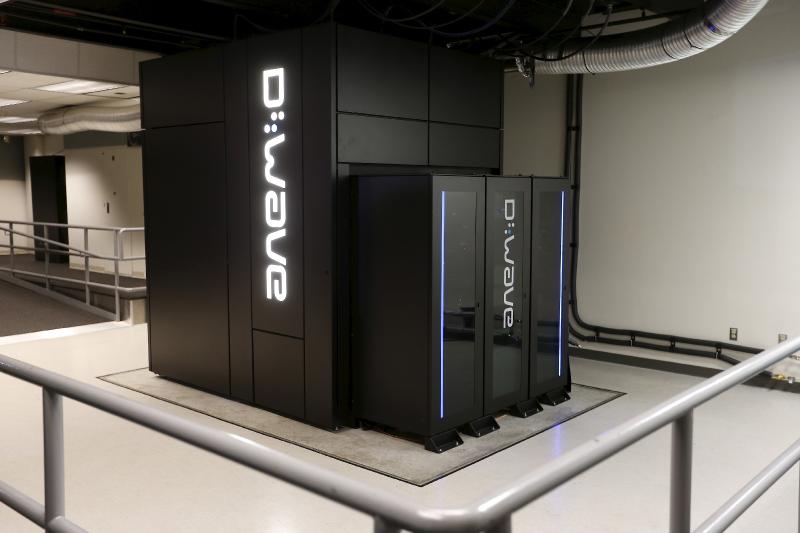D-Wave sets up latest quantum computer in California
Category: Health, Science & Technology
Via: hallux • 3 years ago • 5 commentsBy: Jane Lanhee Lee, Oakland, Calif.


(Reuters) - Vancouver-based quantum computing firm D-Wave Systems Inc said on Thursday it has deployed its latest quantum computer to the University of Southern California.
D-Wave's most powerful machine, called the Advantage system, was launched in September, 2020 and has been operational in Canada and Germany, said Murray Thom, D-Wave's vice president of product management.
U.S. researchers and companies have been able to access the machine online, but the deployment will put a machine physically in the U.S. and comes as Washington boosts its support for quantum technology, he said.
"People are paying very close attention to where things are located and who's working on what," said Murray.
The Advantage system has over 5000 qubits, or quantum bits, which are an indication of the power of the quantum computer.
Quantum computers are expected one day to be able to operate millions of times faster than today's advanced supercomputers.
D-Wave, founded in 1999, said in February that it will go public by merging with blank-check company DPCM Capital in a deal that values the combined company at nearly $1.6 billion.
(Reporting By Jane Lanhee Lee, Oakland, Calif.; editing by Richard Pullin)
Tags
Who is online
45 visitors

O Canada ... what have you gone and done now? It takes me at least an hour to mentally reboot in the morning and now I'm looking at my PC rebooting in less than a nanosecond? Frica-frac, is the future instant convefe? Advantage my ass!
Quantum bits you ask:
How Does a Quantum Computer Work?
Quantum stuff huh? Sounds like it will be more expensive, more invasive and exactly what 99.9999999999999999999999999% do not understand nor need. Will it measure defecation volumes too?
Defecations? They will certainly start to make any latest Star Trek look dated.
Quantum computers are special case computing ... suitable to certain massively parallel algorithms. They will, until we find some miraculous breakthrough in computer science, serve as extremely fast specialty processors.
Not downplaying them at all ... this is incredibly cool stuff. But the conventional (von Neumann) computers will remain as the base architecture for the foreseeable future.